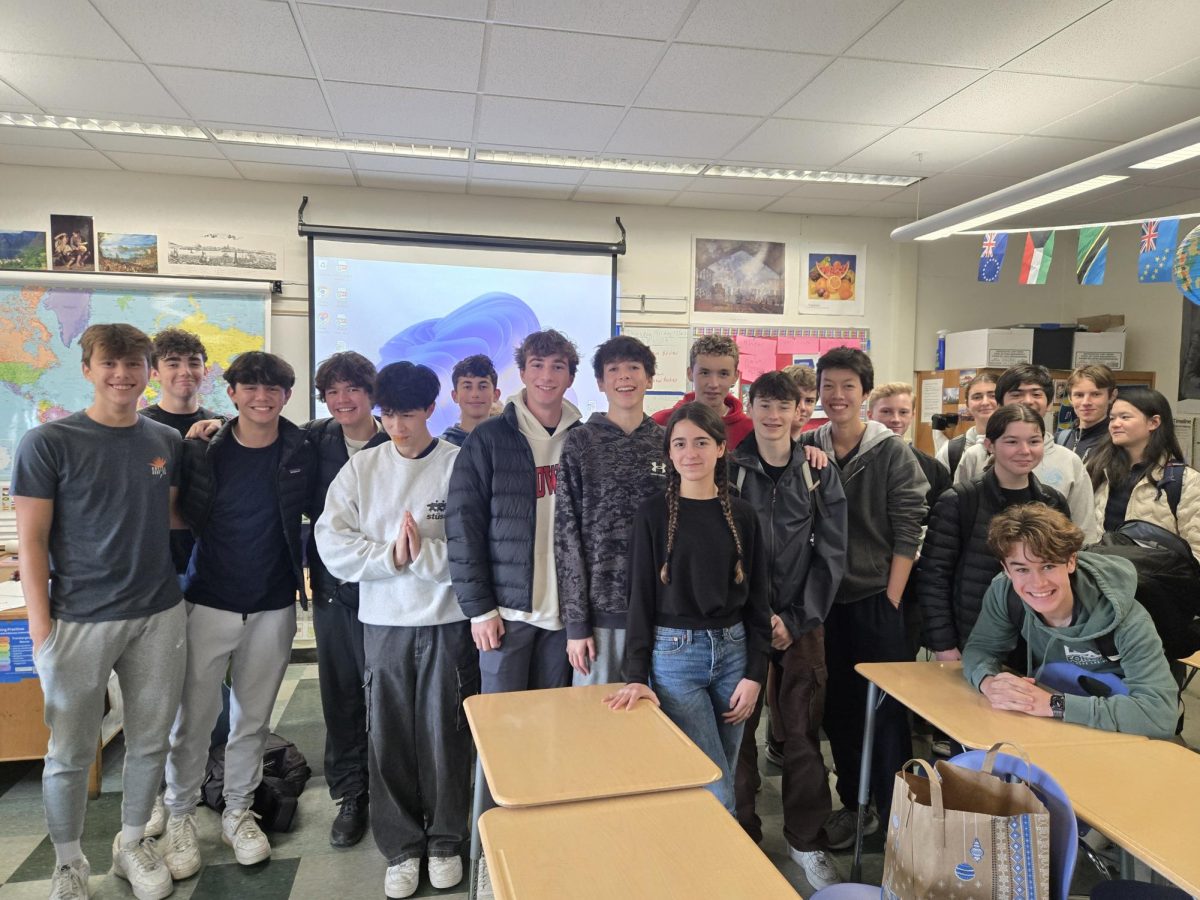On the lush western slopes of the Mauna Loa Volcano, a farm grows everything from coffee to avocados. On this farm, math teacher Lovelyn Sugi-Louie laid the roots for a lifelong love of mathematics.
Sugi-Louie spent her entire childhood living on a farm on the island of Hawaii. There, she learned practical values and mathematical principles that continue to influence her throughout her adulthood.
Sugi-Louie rarely left her family’s farm. When she wasn’t at school, she could almost always be found tending crops or maintaining the farm.
“You don’t realize it at the time, but farming is awfully hard work,” Sugi-Louie said. “It’s a 24/7 type of work, and you don’t realize it as a kid growing up because so much of it is done by the adults.”

Sugi-Louie began working around the farm at a very young age. After school and during summers, whether in rain or shine, she was high in the branches of coffee trees harvesting the fruit or tending to the tree.
From a young age she had to learn the laws of physics and mathematical principles in order to complete tasks on the farm.
“We used it for money, building things, finding solutions to a problem, or just moving stuff,” she said. “It all boiled down to mathematics in the end.”
Sugi-Louie’s experience on the farm drove her to be pragmatic from a young age.
“We had to come up with practical solutions. Maybe things needed to be moved, or bought, or built, and we didn’t have enough money,” Sugi-Louie said.
Sugi-Louie carried her practical attitude well into her higher education, originally pursuing her childhood dream of becoming an engineer.
By her third year of college, jobs in engineering became increasingly scarce, demanding Sugi-Louie to pursue another career in mathematics: teaching.
Aside from how practical the farm was, Sugi-Louie also liked it for the sense of community it gave her with other families from all over the western side of the island.
The rough-and-tumble lifestyle united people from all over the region, creating a thriving community of farmers in the area. Sugi-Louie considered them almost as part of her own family.
“You didn’t feel insecure, you didn’t feel scared, because you always had someone to go to,” Sugi-Louie said.
Her family’s farm, like many others in the region, lived in relative poverty, with most of their food coming directly from the fields and their water from a rain collector.
“I loved the farm because it made you appreciate what you had,” Sugi-Louie said.
Aside from working around the farm , Sugi-Louie avidly read books as a child.
“[Reading] took me to faraway places, to places that I had no opportunity to actually see, so I read voraciously,” Sugi-Louie said. “I would read into the dead of night when everyone was asleep.”
While Sugi-Louie’s family had lived on the farm for generations, her mother had moved to Hawaii from Japan after World War II.
Sugi-Louie was close to her mother, who would tell her stories of living in the city and experiencing all four seasons.
“I grew up with my mom’s story of Japan, with winters and snow and going out into the woods to hunt for mushrooms, but also her stories of growing up in wartime Japan,” Sugi-Louie said.
Her talks with her mom eventually inspired her to go to the mainland United States.
As soon as she got out of high school, Sugi-Louie went off to college at Eastern Washington State University.
As the eldest child in a large family, Sugi-Louie was always teaching things to her siblings and answering their questions but never envisioned herself becoming a teacher.
“I guess I was always headed towards being a teacher, but I didn’t really think of it as my first vocation,” Sugi-Louie said.
After graduating from Eastern Washington State University, she began teaching in Oahu before moving to the Bay Area, where she has been teaching at Redwood ever since.
Once she retires from teaching, Sugi-Louie hopes to return to Hawaii and experience the warm tropical weather from her childhood again.





